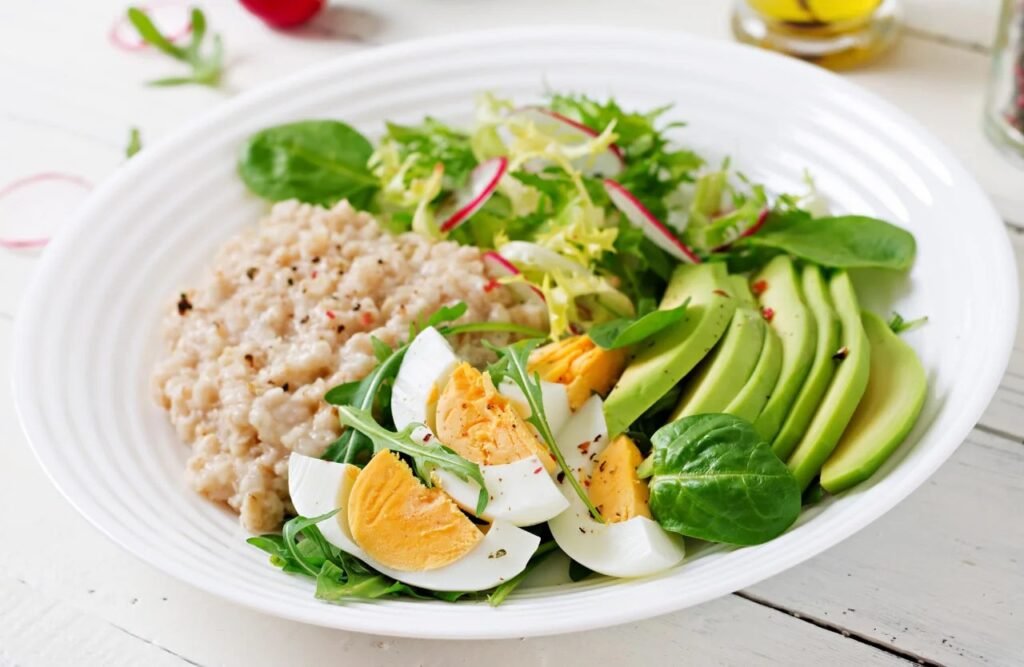Family Weight Loss Health: Transform Your Family’s Health in 30 Days

Losing weight can be challenging, but doing it together as a family makes the journey more achievable and fun. When the whole household commits to getting healthy, everyone benefits from shared motivation, better habits, and a stronger bond. This guide is packed with practical steps for creating a sustainable family weight loss plan that leads to lifelong health and wellness.
Why Family Weight Loss Works
Built-In Support System
Family members can encourage and hold each other accountable, turning obstacles into opportunities for growth.
Consistency at Home
With everyone on board, it’s easier to keep the fridge stocked with healthy foods and maintain active routines.
Lasting Habits for Kids
Children learn lifelong wellness habits when health is a family priority.
Step 1: Evaluate and Plan Together
Start With a Family Health Assessment
- Check with a doctor to understand everyone’s baseline.
- Identify any specific needs or restrictions.
Set Realistic Group and Individual Goals
- SMART goals (Specific, Measurable, Achievable, Relevant, Time-bound).
- Examples: “Lose 5 pounds in 8 weeks,” “Add a vegetable to every dinner,” or “Take a walk five nights a week.”
Create a Shared Vision
- Make a vision board or family mission statement.
- Discuss why getting healthy matters to each person.
Step 2: Make Nutrition a Family Affair
Clean Up the Kitchen Together
- Purge sugary snacks, soda, and processed foods.
- Stock up on whole grains, lean proteins, fruits, and vegetables.
Meal Planning and Prepping
- Make a weekly plan as a family.
- Assign cooking tasks to everyone (even young kids).
Sample Family-Friendly Day of Eating
| Meal | Example |
|---|---|
| Breakfast | Oatmeal with bananas and peanut butter |
| Snack | Carrot sticks and hummus |
| Lunch | Turkey wraps with whole wheat tortillas, lettuce, tomato |
| Snack | Yogurt with berries |
| Dinner | Baked chicken, brown rice, steamed broccoli |
Eat Together
Family meals reduce mindless snacking and improve food choices.
Step 3: Get Moving—Together
Make Daily Activity Non-Negotiable
- Aim for 30–60 minutes of movement daily.
- Break it into short sessions if needed.
Ideas for Family Workouts
- Walks after dinner
- Weekend bike rides
- Dance workouts on YouTube
- Home circuit training (squats, jumping jacks, push-ups)
- Sports: basketball, soccer, tennis
Weekly Sample Activity Plan
| Day | Activity |
| Monday | Family walk (30 minutes) |
| Tuesday | Online fitness video together |
| Wednesday | Obstacle course in the yard |
| Thursday | Strength training (bodyweight) |
| Friday | Dance party in the living room |
| Saturday | Hike or park games |
| Sunday | Light stretching and planning |
Step 4: Sleep and Stress Management
Get Enough Rest
Sleep supports metabolism and mood.
- Kids: 9–12 hours
- Teens: 8–10 hours
- Adults: 7–9 hours
Build Healthy Sleep Habits
- Screen-free time before bed
- Consistent sleep/wake times
- Relaxing nighttime routines
Manage Stress Together
- Practice gratitude journaling
- Try family meditation
- Set aside “talk time” for open conversations
Step 5: Stay on Track with Motivation and Monitoring
Make Progress Visible
- Use a family health chart or app
- Mark off healthy habits daily
- Take photos or measurements every few weeks
Reward Non-Scale Victories
- Celebrate healthy choices
- Examples: “We hit our water goals!” or “We worked out 5 days this week!”
- Use non-food rewards like new games, books, or family outings
Create Accountability
- Have weekly check-ins
- Talk about what’s working and what’s not
Step 6: Deal With Common Challenges
Picky Eaters
- Offer healthy options in fun shapes or colorful plates
- Don’t force eating—keep exposure consistent
Time Constraints
- Prep meals on weekends
- Choose quick 15–30 minute workouts
- Use crockpots or one-pan meals
Plateaus or Setbacks
- Re-evaluate goals
- Try a new activity or recipe
- Focus on how everyone feels, not just the scale
Step 7: Make It a Lifestyle, Not a Phase
Keep It Positive
Avoid talking about weight or size. Focus on strength, energy, and well-being.
Encourage Autonomy in Kids
- Let them choose healthy snacks
- Teach label reading and portion awareness
Lead By Example
Model balanced habits, self-care, and moderation.
30-Day Transformation Plan
Week 1: Kickoff Week
- Remove junk food from the house
- The family walks every evening
- Plan and cook 3 meals together
Week 2: Build Momentum
- Introduce 2 new healthy recipes
- Add a weekend outdoor activity
- Focus on drinking more water
Week 3: Strength & Routine
- Do 3 strength workouts as a family
- Reduce screen time by 30 minutes a day
- Practice family gratitude journaling
Week 4: Reflect and Refine
- Try a new workout together
- Have each person share what’s working
- Celebrate with a healthy family picnic
Conclusion
Family weight loss is about more than shedding pounds—it’s about gaining health, happiness, and connection. In just 30 days, with small, consistent actions, your family can feel better, move more, and grow closer. By working together, making smart choices, and supporting each other, your family can build a foundation for lifelong wellness. Start with small changes, celebrate every win, and remember: the journey is better when taken together.
